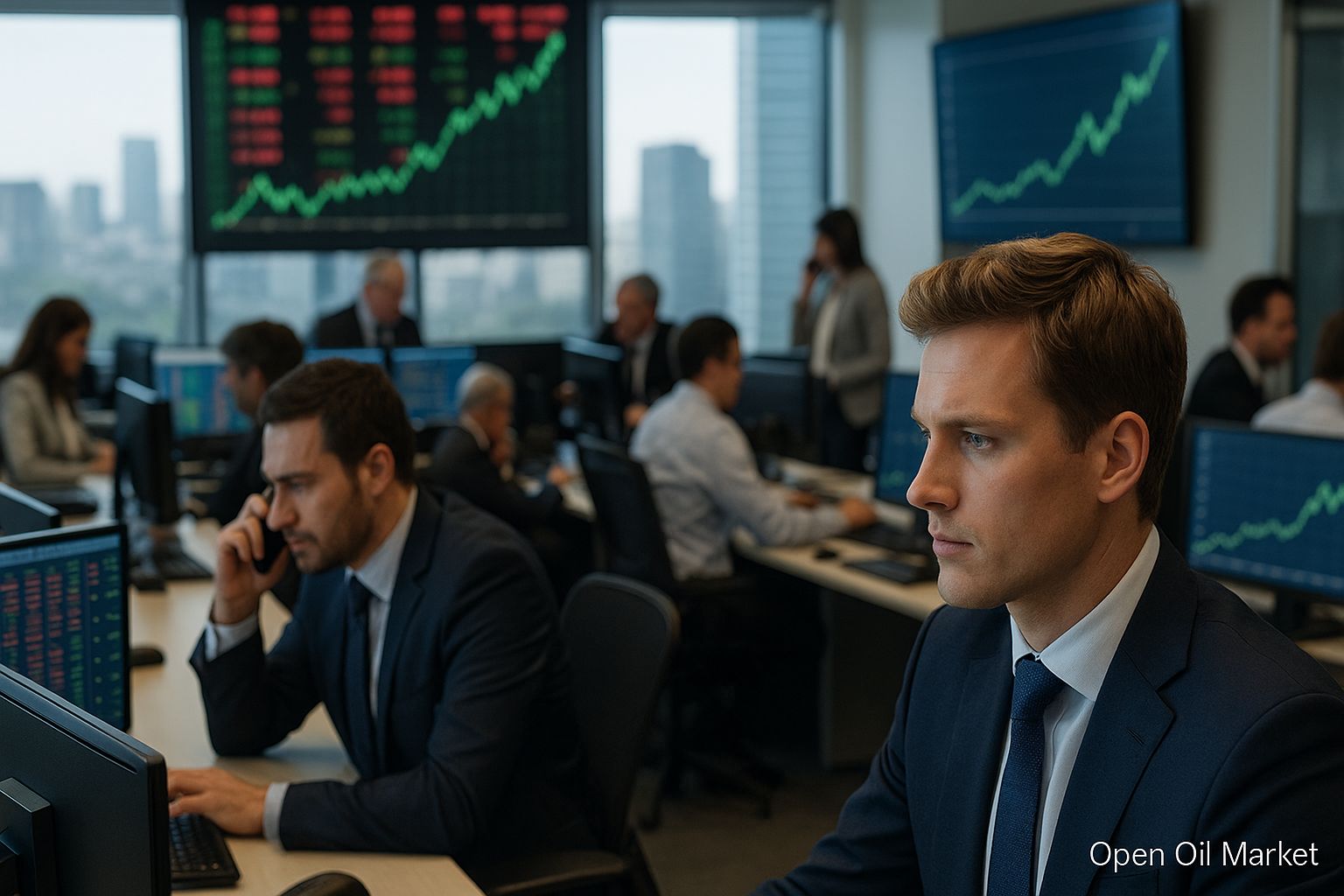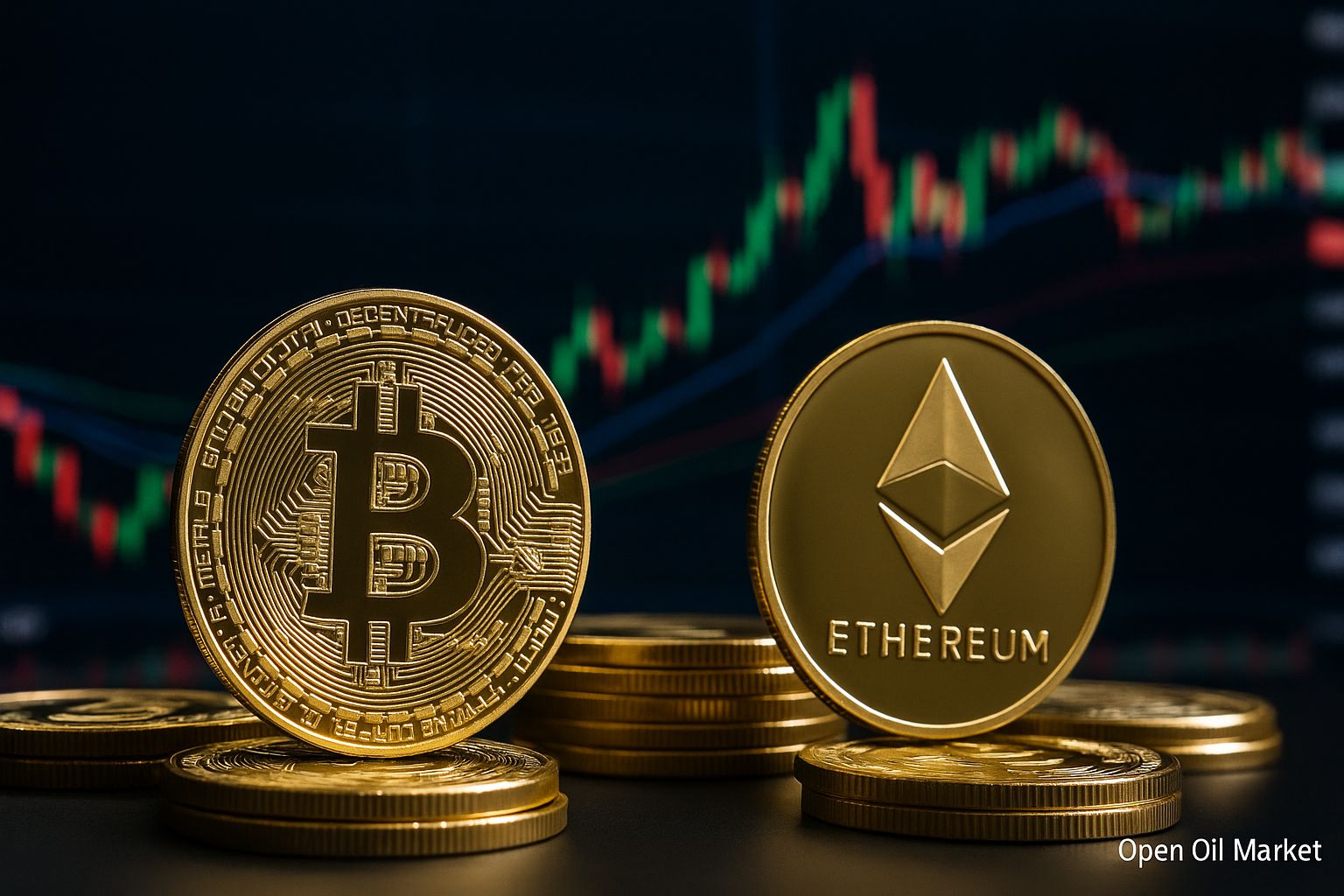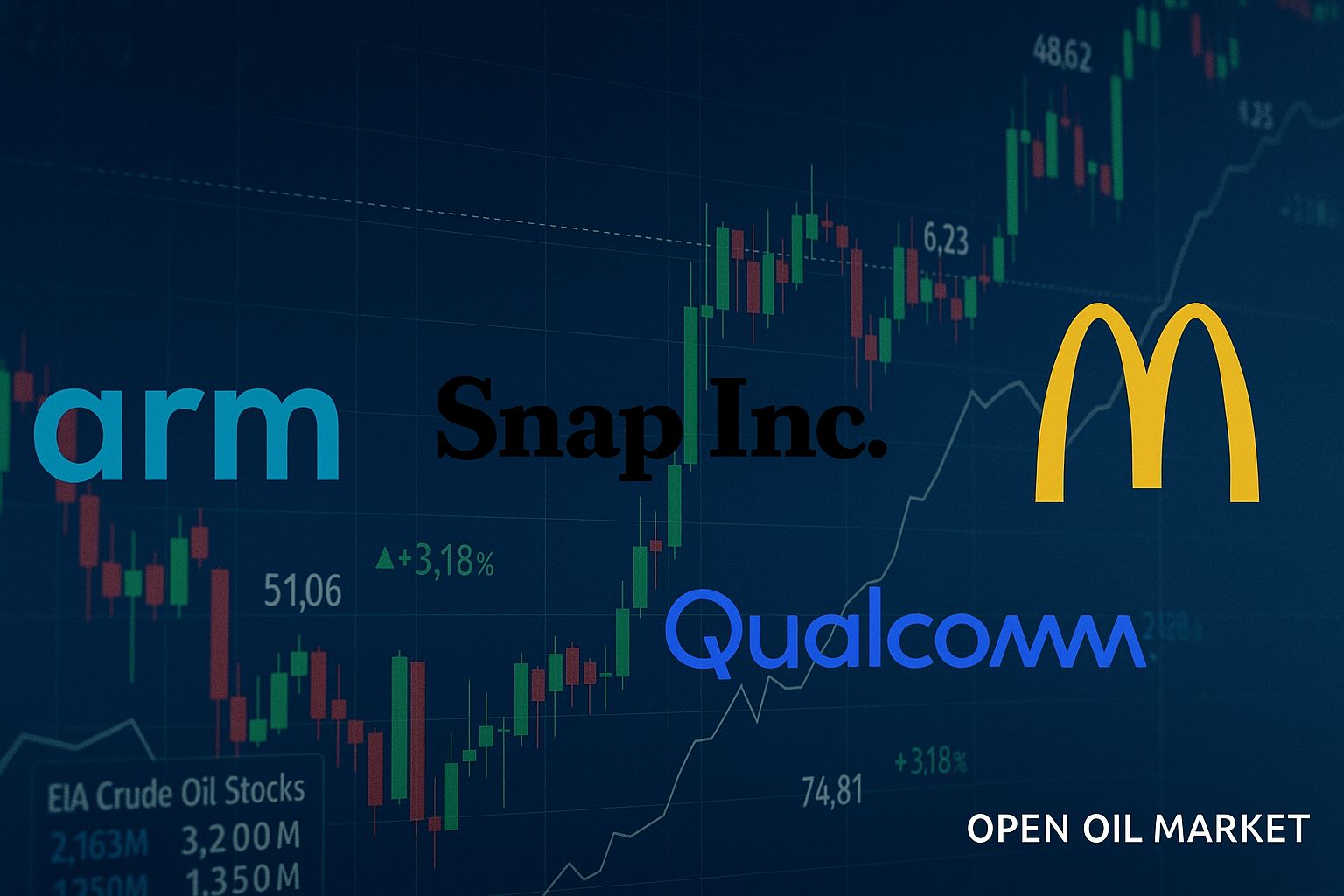
Global Overview of Venture Investments and Startup News as of October 19, 2025: Record Investment Rounds, Surge of Activity in AI and Fintech, Revitalization of IPOs, and Mega Deals in the Technology Sector.
By mid-October 2025, the global venture capital industry is showing significant growth after several years of decline. Investors around the world are once again actively funding tech startups—record deals are being closed, IPO plans are back on the table, and major players are returning to the market with substantial investments. Governments in various countries are ramping up support for innovation and technology. As a result, private capital is gradually returning to startup ecosystems, giving them a new momentum for development.
Venture activity is increasing across all regions. The United States continues to lead (with a particularly rapid expansion in the artificial intelligence sector), while venture investment in the Middle East has nearly doubled over the past year. In Europe, Germany has overtaken the United Kingdom in deal volume for the first time in a decade, and Mexico has surpassed Brazil in capital raised in Latin America. India, Southeast Asia, and Gulf countries are attracting record flows of investment amid a relative decline in activity in China. Even in Africa, while at a smaller scale, there is a growing interest from global investors in local tech hubs. A global venture boom is underway, although investors remain selective and cautious.
Below are key events and trends shaping the venture market agenda for October 19, 2025:
- The Return of Mega Funds and Large Investors. Leading venture funds are attracting unprecedented capital and are actively investing in startups again, flooding the market with liquidity and rekindling the appetite for risk.
- Record Investments in AI and a New Wave of Unicorns. Exceptionally large funding rounds are driving startup valuations to unprecedented heights, particularly in the AI sector, leading to a plethora of new unicorns entering the market.
- Revitalization of the IPO Market. Successful public offerings of tech companies and new listing applications signal that the long-anticipated “window” for exits has reopened.
- Diversifying Investments: Not Just AI. Venture capital is flowing not only into AI but also into fintech, climate tech, biotech, and defense projects, with interest in crypto startups gradually returning.
- A Wave of Consolidation and M&A Deals. Major mergers, acquisitions, and strategic investments are reshaping the industry landscape, creating new exit opportunities and accelerating the growth of startups.
- Local Focus: Russia and the CIS. New funds and initiatives aimed at developing local startup ecosystems are being launched in the region, attracting investor interest despite external limitations.
The Return of Mega Funds: Big Money is Back in the Market
The largest investment players are making a triumphant return to the venture arena, signaling renewed risk appetite. Japanese conglomerate SoftBank has launched a new Vision Fund III with approximately $40 billion, focusing on advanced technologies (including AI and robotics). In the US, Andreessen Horowitz (a16z) is establishing a mega fund of approximately $20 billion in 2025, targeting projects in the AI space—this is the largest fund in the company's history and one of the largest in the industry following SoftBank's legendary $100 billion Vision Fund.
Overall, the industry is once again saturated with "dry powder": the largest funds have accumulated tens of billions of dollars in uninvested capital over the past few years. In 2022, around 30 leading venture firms captured up to 75% of all raised funds—a clear trend towards fund consolidation. Sovereign wealth funds from wealthy countries and institutional investors are eager to invest in these mega-structures, seeking access to the explosive growth of AI technologies and other promising areas. Record levels of available capital mean heightened competition for the best deals and a readiness for the venture market to finance increasingly large-scale projects.
Record Investments in AI and a New Wave of Unicorns
The artificial intelligence sector remains the main driver of the current venture surge, demonstrating record levels of funding. Investors are eager to secure positions among AI leaders by directing colossal funds into the most promising projects. For instance, the startup xAI (founded by Elon Musk) raised around $10 billion, while OpenAI secured approximately $8 billion at a valuation of around $300 billion—these rounds significantly exceeded initial expectations, highlighting the frenzy around AI companies. Notably, funding is flowing not only into applied AI applications but also into the infrastructure solutions for them. Rumor has it that one AI data storage startup is negotiating a multi-billion dollar round at a very high valuation—the market is ready to invest even in the "shovels and pickaxes" of the new AI ecosystem.
This current investment boom has spawned a wave of new unicorns (private companies valued over $1 billion), mainly in the fields of generative AI, fintech, and advanced technologies. While some experts warn of a potential bubble forming in the private capital market due to the rapid rise in valuations, investor appetite for AI startups remains strong.
The IPO Market Awakens: A Window of Opportunity for Exits
The global IPO market is finally emerging from a prolonged lull and showing signs of revitalization. In Asia, Hong Kong is leading a new wave of tech public offerings: in recent weeks, several large companies have listed on the local exchange, collectively raising billions of dollars. For example, Chinese battery manufacturer CATL successfully completed an IPO, raising around $5 billion—this debut demonstrated investor willingness in the region to actively participate in primary offerings again.
The situation is also improving in the US and Europe. American fintech unicorn Chime recently debuted on the stock market, with shares rising approximately 30% on the first trading day. Following it, design platform Figma conducted its long-awaited IPO, raising about $1.2 billion with a valuation of around $15–20 billion; its shares have also confidently risen from the very first days. In the second half of 2025, several well-known startups are preparing to go public, including payments service Stripe and a number of tech firms with multi-billion valuations.
Even the crypto industry is trying to take advantage of the improved market conditions. Fintech company Circle successfully went public last summer (its market capitalization significantly increased following the listing), while cryptocurrency exchange Bullish has filed for a listing in the US with a target valuation of around $4 billion. The return of IPO market activity is critically important for the venture ecosystem: successful public exits allow funds to realize profits, return capital to investors, and direct freed-up resources into new projects.
Diversifying Investments: Not Just AI
Despite the dominance of AI narratives, venture investments are broadening their reach and are no longer limited to artificial intelligence alone. Following last year's decline, fintech is regaining momentum: large rounds are taking place not only in the US but also in Europe and emerging markets, stimulating the growth of new digital financial services. Simultaneously, there has been a dramatic increase in interest in climate and "green" technologies: projects in renewable energy, eco-friendly solutions, and agri-tech are attracting record investments amid a global sustainable development trend. Analysts estimate that in the first nine months of 2025, global climate startups raised about $56 billion—more than in all of 2024 combined.
The appetite for biotechnology is returning as well. The emergence of several promising developments in pharmaceuticals and medtech is attracting capital once again, as the sector gradually emerges from a period of declining valuations. Additionally, amid heightened attention to security, investors are actively funding defense-tech startups creating solutions for protection and cybersecurity. Even in the cryptocurrency sector, a slight revival has been observed: a partial restoration of trust in the market has allowed certain blockchain projects to attract funding again. The expanding industry focus is making the entire startup ecosystem more resilient and reducing the risk of overheating in individual market segments.
Consolidation and M&A: Mega Deals Reshape the Industry Landscape
High valuations for startups and intense competition are pushing the industry towards consolidation. Major mergers and acquisitions are taking center stage again, redistributing power in the market. For instance, Google has agreed to acquire Israeli cybersecurity startup Wiz for approximately $32 billion—this record-sized deal demonstrates tech giants' desire to secure key technologies and talent. There is also a rise in strategic purchases: in the first half of 2025, the volume of startup acquisitions surpassed $100 billion (155% more than the previous year), as large companies are willing to write big checks for promising assets, especially in AI and enterprise technologies.
Consolidation is also happening within the venture sector itself. For example, investment bank Goldman Sachs announced the acquisition of venture firm Industry Ventures for nearly $1 billion, emphasizing the growing interconnectedness between traditional finance and the startup world. Overall, the surge in M&A activity and a series of mega deals indicate the maturing of the market. Mature startups are merging with each other or becoming acquisition targets for corporations, providing venture investors with long-awaited profitable exits and accelerating the scaling of innovations.
Russia and the CIS: Local Initiatives Amid Global Trends
Despite external limitations, there is a revival of startup activity in Russia and neighboring countries. Several new venture funds with a total volume of approximately 10–12 billion rubles have been announced, aimed at supporting early-stage tech projects. Local startups are starting to attract more serious capital: for example, Krasnodar-based foodtech startup Qummy recently raised around 440 million rubles at a valuation of approximately 2.4 billion rubles. Furthermore, foreign investors are once again allowed to fund local projects in Russia, gradually rekindling foreign capital interest in the region.
While the volumes of venture investments in Russia and the CIS remain modest compared to global figures, they are steadily increasing. Some large companies are considering the prospect of spinning off their tech divisions on the stock market as market conditions improve—for example, holding VK has hinted at a potential IPO for its subsidiary VK Tech in the future. New government support measures and corporate initiatives are designed to give local startup ecosystems an additional boost and integrate them into broader global trends.
Cautious Optimism and Quality Growth
By October 2025, moderately optimistic sentiments have settled in the venture industry: successful IPOs and large deals indicate that the downturn period is behind us. Nevertheless, investors remain selective about new projects, favoring startups with sustainable business models and realistic growth plans. Significant inflows of capital into AI and other advanced sectors instill confidence, yet funds are striving to diversify investments and exercise stricter risk management to prevent the new upswing from turning into overheating. The industry is entering a new phase of development focused on quality, balanced growth of innovations and capital.




